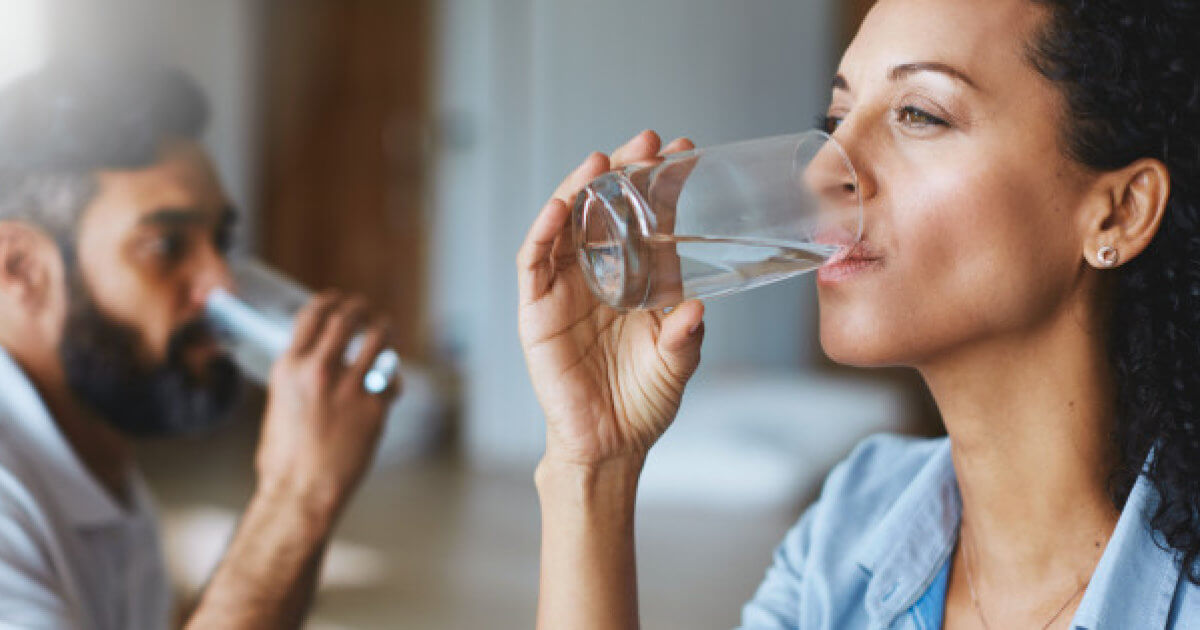Why Do Cities Put Chlorine Water? Here’s the Answer and the Reason You Need Home Water Filtration!

In today’s water safety debate, one question rises above all the others: Does it make sense to chlorinate water?
This debate has actually been raging for more than two decades, with one side arguing for clean water (chlorine) and the other side arguing for chemical-free water. You would think, with an issue this important, that a few studies would wrap the issue up once and for all. Is chlorine in tap water a good idea or isn’t it?
The problem is that the answer is complicated. In short, it is both ‘Yes’ and ‘No’ at the same time.
Why Cities Put Chlorine in Your Tap Water
Water from the tap is supposed to be safe to drink, clean with, and bathe in. Cities promise you that the water is clean and post advisories if there is any reason (like flooding) to not trust the cleanliness of municipal water. But how do they know your water is clean and safe to drink?
The obvious answer is water treatment centers, huge facilities that process every drop of water that flows through the city taps. First, remember that our drinking water starts in a lake, aquifer, or groundwater supply. So it’s full of all sorts of natural things like dirt and fish that will need to be filtered out.
First the treatment plant runs the water through filters to remove all solids, but this doesn’t clear out smaller things like bacteria and microorganisms that could make you really sick. That is why chlorine is added to the filtered water, to kill any molecule-sized creepy crawlies that were living in the natural water. Chlorine is actually necessary to the process to make sure the water is safe to drink.
Why You Need to Filter Out the Chlorine
Unfortunately, chlorinated water is only ‘safe to drink’ in the respect that it no longer contains bacteria or microorganisms. Chlorine is just as toxic invisibly in your tap water as it is sitting in that jug under your sink. If you wouldn’t let your child put a few drops of chlorine in their cup, then you should also be wary of the chlorine in the tap water.
Even in small amounts, regular exposure to chlorine can create long-lasting health problems. However, due to sensitivity and body chemistry, people often have very different responses. Some get headaches, some gain weight, some experience indigestion. Chlorine has also been found to increase your risk of cancer. Most of the negative health effects come directly from the fact that chlorine is a caustic base that destroys living cells it comes into contact with.
The Home Filtration Solution
So what it comes down to is that you both do and don’t want chlorine to be part of your drinking water depending on the situation. It may be deal to have it added during the stage between natural water in a lake and running down the pipes. Chlorinated water in the city pipes may actually contribute to cleaner pipes and fewer in-transit contaminates.
But you also don’t want to actually drink water that contains chlorine. This leads to one simple home-by-home solution…installing a water purifier in your home is the perfect way to solve this ‘yes and no’ conundrum. No matter how water treatment may be improved in the future, there is chlorine coming through your tap now and will be for years. So instead of worrying about the health risks, a home filtration system is the ideal way to ensure that water is clean and safe for you and your family.
Achieving clean, safe water is a much more involved process than most people realize. For decades, it wasn’t even known that chlorine was harmful and the health issues were attributed to other environmental factors. We now know the truth but an all-in-one solution is still well in the future. Today, the best solution is to take on your part in the two-step process. The city will make sure there are no bacteria in the water and your home filtration system will make sure your water is chlorine-free. For more information about installing the right water purifier for your home, contact us today!




